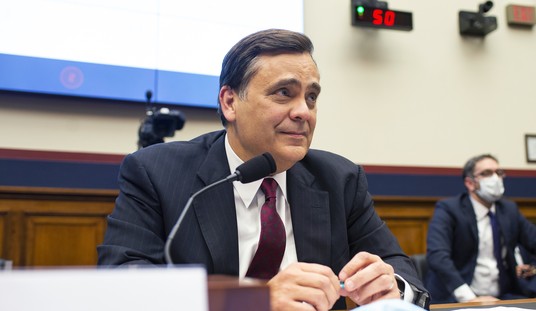If you recall back in March, [mc_name name=’Rep. Jason Chaffetz (R-UT)’ chamber=’house’ mcid=’C001076′ ] was point man as the Secret Service had its failures of commission and omission made public. On March 19, he had a particularly testy hearing over the handling of a suspicious package found on White House grounds that took the Secret Service over 20 minutes to respond.
On April 2, articles similar to this appeared:
House Oversight Committee Chairman Jason Chaffetz, who oversees the Secret Service, never disclosed that he had applied for and was rejected from the agency in the early 2000s.
“It was because I was too old,” the Utah Republican told The Daily Beast. “I’m not sure [of the reason]…that’s more than a decade ago.”
The Secret Service now requires that applicants be between the ages of 21 and 37 at the time of appointment. Chaffetz said he was unsure whether he had applied in 2002 or 2003. He would have been 36 in 2003.
…
Early on in the process, he received a “BQA” letter, a rejection letter that explained he was rejected because there were better qualified applicants at the time. A BQA is a generic rejection that can take place at various points of the application process. Chaffetz said he was never given a physical test by the Secret Service.
The Director of Homeland Security was asked to investigate and today the IG for Homeland Security’s report became public. A fish, as they say, rots from the head down.
An assistant director of the Secret Service urged that unflattering information the agency had in its files about a congressman critical of the service should be made public, according to a government watchdog report released Wednesday.
“Some information that he might find embarrassing needs to get out,” Assistant Director Edward Lowery wrote in an e-mail to a fellow director on March 31, commenting on an internal file that was being widely circulated inside the service. “Just to be fair.”
Two days later, a news Web site reported that Rep. Jason Chaffetz (R-Utah), chairman of the House Oversight Committee, had applied to be a Secret Service agent in 2003 and been rejected.
That information was part of Chaffetz’s personnel file stored in a restricted Secret Service database and required by law to be kept private.
Not only was Chaffetz’s supposedly confidential file made public, but it was widely circulated within the Secret Service:
The Chaffetz file, contained in the restricted database, had been peeked at by about 45 Secret Service agents, some of whom shared it with their colleagues in March and April, the report found. This prying began after a contentious March 24 House hearing at which Chaffetz scolded the director and the agency for its series of security gaffes and misconduct. The hearing sparked anger inside the agency.
…
Staff members in the most senior headquarters offices, the president’s protective detail, the public affairs office, the office of investigations and field offices in Sacramento, Charlotte, Dallas and elsewhere accessed Chaffetz’s file — and many acknowledged sharing it widely, according to the report. The day after the March 24 hearing, one agent who had been sent to New York for the visit of the president of Afghanistan recalled that nearly all of the 70 agents at a briefing were discussing it.
All told, 18 supervisors, including assistant directors, the deputy director and even Clancy’s chief of staff knew the information was being widely shared through agency offices, the report said.














Join the conversation as a VIP Member